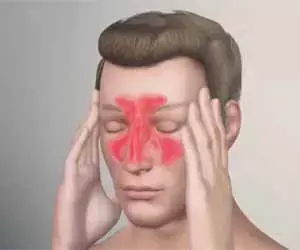- Home
- Medical news & Guidelines
- Anesthesiology
- Cardiology and CTVS
- Critical Care
- Dentistry
- Dermatology
- Diabetes and Endocrinology
- ENT
- Gastroenterology
- Medicine
- Nephrology
- Neurology
- Obstretics-Gynaecology
- Oncology
- Ophthalmology
- Orthopaedics
- Pediatrics-Neonatology
- Psychiatry
- Pulmonology
- Radiology
- Surgery
- Urology
- Laboratory Medicine
- Diet
- Nursing
- Paramedical
- Physiotherapy
- Health news
- Fact Check
- Bone Health Fact Check
- Brain Health Fact Check
- Cancer Related Fact Check
- Child Care Fact Check
- Dental and oral health fact check
- Diabetes and metabolic health fact check
- Diet and Nutrition Fact Check
- Eye and ENT Care Fact Check
- Fitness fact check
- Gut health fact check
- Heart health fact check
- Kidney health fact check
- Medical education fact check
- Men's health fact check
- Respiratory fact check
- Skin and hair care fact check
- Vaccine and Immunization fact check
- Women's health fact check
- AYUSH
- State News
- Andaman and Nicobar Islands
- Andhra Pradesh
- Arunachal Pradesh
- Assam
- Bihar
- Chandigarh
- Chattisgarh
- Dadra and Nagar Haveli
- Daman and Diu
- Delhi
- Goa
- Gujarat
- Haryana
- Himachal Pradesh
- Jammu & Kashmir
- Jharkhand
- Karnataka
- Kerala
- Ladakh
- Lakshadweep
- Madhya Pradesh
- Maharashtra
- Manipur
- Meghalaya
- Mizoram
- Nagaland
- Odisha
- Puducherry
- Punjab
- Rajasthan
- Sikkim
- Tamil Nadu
- Telangana
- Tripura
- Uttar Pradesh
- Uttrakhand
- West Bengal
- Medical Education
- Industry
Olfactory Function After Endoscopic Sinus Surgery declines with age, Study reports

According to recent study, it has been observed that the improvement of olfactory function of chronic rhinosinusitis (CRS) patients after endoscopic sinus surgery declines with aging.
The study is published in the Ear, Nose & Throat Journal.
Weiping Qi and colleagues from the Department of ENT, Baoji Central Hospital, Baoji, Shaanxi Province, China conducted the present study with the sole aim to study the effects of age on the olfactory function recovery of chronic rhinosinusitis patients after endoscopic sinus surgery and related risk factors.
The authors enrolled a total of 176 chronic rhinosinusitis (CRS) patients. All the patients were divided into child, youth, middle-aged, and elderly groups. Their baseline data, T&T olfactory test score, visual analogue scale (VAS) olfactory score, sinus computed tomography (CT) Lund-Mackay score, and Lund-Kennedy score were compared. Based on postoperative olfactory function, they were divided into good and poor improvement groups.
The following key findings were noted and reported-
- Complication with nasal polyps, allergic rhinitis history, and sinus surgery history had significant differences among patients of different ages (P < .05).
- Three months after surgery, T&T olfactory, VAS olfactory, Lund-Mackay, and Lund-Kennedy scores all rose with increasing age, with significant differences between any 2 groups (P < .05).
- The improvement of postoperative olfactory function became poorer with aging (P < .05).
- T&T and VAS olfactory scores had significant positive correlations with Lund-Mackay and Lund-Kennedy scores (P < .001).
- Age, preoperative Lund-Mackay and Lund-Kennedy scores, complication with nasal polyps, allergic rhinitis history, sinus surgery history, and postoperative complications were risk factors for the poor improvement of postoperative olfactory function.
- Doctor-directed treatment was a protective factor for good improvement.
Hence, the authors concluded that "the improvement of olfactory function of CRS patients after endoscopic sinus surgery declines with aging. Age, preoperative Lund-Mackay and Lund-Kennedy scores, complication with nasal polyps, allergic rhinitis history, sinus surgery history, and postoperative complications are risk factors for the poor improvement of postoperative olfactory function. Doctor-directed treatment is a protective factor for good improvement."
Dr. Nandita Mohan is a practicing pediatric dentist with more than 5 years of clinical work experience. Along with this, she is equally interested in keeping herself up to date about the latest developments in the field of medicine and dentistry which is the driving force for her to be in association with Medical Dialogues. She also has her name attached with many publications; both national and international. She has pursued her BDS from Rajiv Gandhi University of Health Sciences, Bangalore and later went to enter her dream specialty (MDS) in the Department of Pedodontics and Preventive Dentistry from Pt. B.D. Sharma University of Health Sciences. Through all the years of experience, her core interest in learning something new has never stopped. She can be contacted at editorial@medicaldialogues.in. Contact no. 011-43720751
Dr Kamal Kant Kohli-MBBS, DTCD- a chest specialist with more than 30 years of practice and a flair for writing clinical articles, Dr Kamal Kant Kohli joined Medical Dialogues as a Chief Editor of Medical News. Besides writing articles, as an editor, he proofreads and verifies all the medical content published on Medical Dialogues including those coming from journals, studies,medical conferences,guidelines etc. Email: drkohli@medicaldialogues.in. Contact no. 011-43720751


